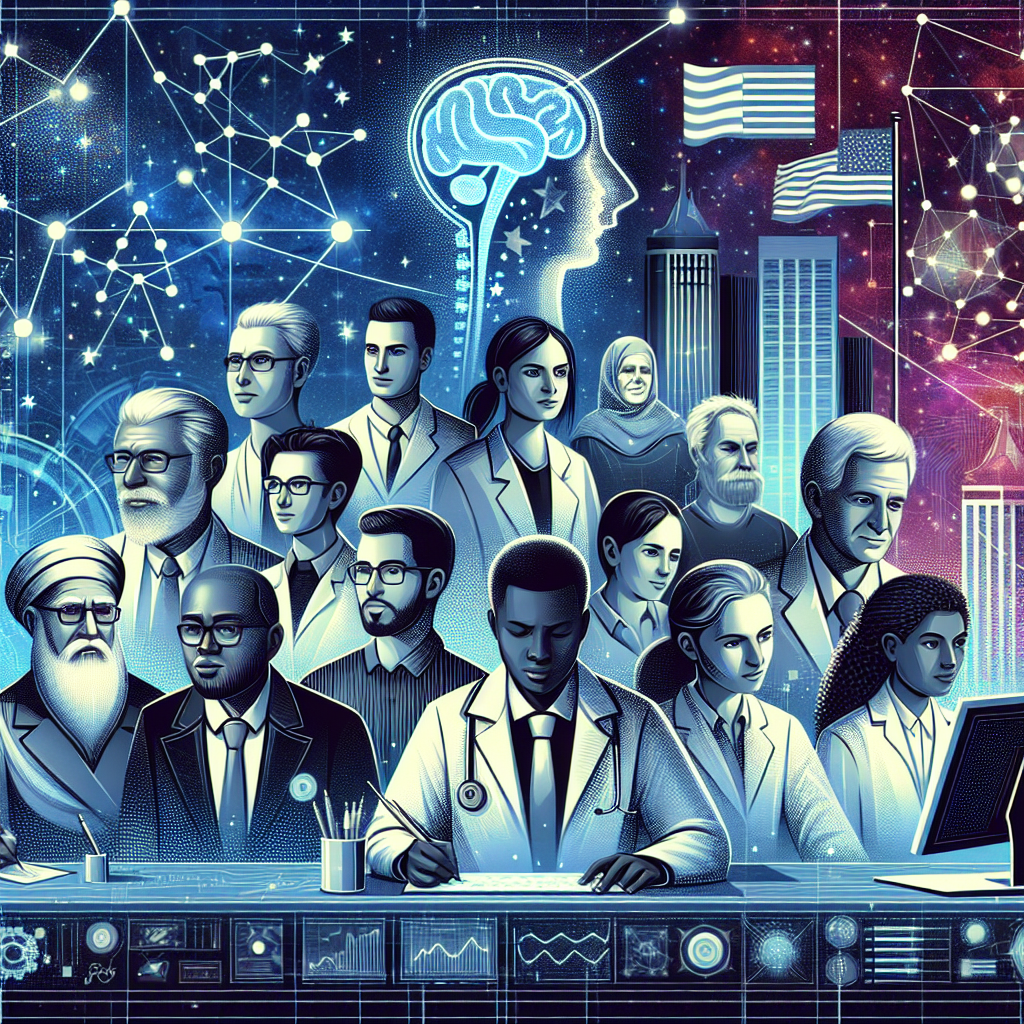The Race for AGI: Who Will Lead the Charge in Developing this Technology?
Artificial General Intelligence (AGI) is the next frontier in the field of artificial intelligence. Unlike narrow AI, which is designed for specific tasks, AGI is capable of understanding and learning any intellectual task that a human being can. This level of intelligence has the potential to revolutionize industries, societies, and even the human condition itself. As such, the race to develop AGI is well underway, with major players in the tech industry vying for the lead in this monumental endeavor.
In this article, we will explore the current landscape of the AGI race, the key players involved, and the potential implications of this groundbreaking technology. We will also address some frequently asked questions about AGI and its development.
The Current Landscape of the AGI Race
The development of AGI is a complex and multifaceted process that requires a combination of advanced technologies, vast amounts of data, and cutting-edge research. As such, the race to achieve AGI is being pursued by a select group of companies, research institutions, and governments around the world.
One of the key players in the AGI race is Google, through its subsidiary DeepMind. DeepMind has been at the forefront of AI research for years, and its AlphaGo program famously defeated the world champion Go player in 2016. DeepMind is now focused on developing AGI through its research in reinforcement learning, neural networks, and other AI technologies.
Another major player in the AGI race is OpenAI, a research lab founded by Elon Musk and other tech luminaries. OpenAI is known for its work in natural language processing, robotics, and other areas of AI research. The lab is committed to developing AGI in a safe and ethical manner, and its research has already made significant strides in this direction.
Other companies and institutions involved in the AGI race include IBM, Microsoft, Facebook, and various universities and research centers around the world. These organizations are investing heavily in AI research and development, with the goal of achieving AGI within the next decade or so.
Implications of AGI
The development of AGI has the potential to bring about profound changes in virtually every aspect of human life. From healthcare and education to transportation and entertainment, AGI could revolutionize industries and societies in ways that are difficult to imagine. Here are some potential implications of AGI:
– Automation: AGI has the potential to automate a wide range of tasks currently performed by humans, from driving cars to diagnosing diseases. This could lead to increased efficiency, lower costs, and higher levels of productivity in many industries.
– Job displacement: The automation of tasks by AGI could also lead to job displacement for millions of workers around the world. As machines become more capable of performing complex tasks, many traditional jobs may become obsolete, leading to widespread unemployment and social unrest.
– Ethical concerns: The development of AGI raises a number of ethical concerns, including issues related to privacy, security, and bias. As machines become more intelligent and autonomous, questions about their rights and responsibilities will become increasingly important.
– Existential risks: Some experts believe that the development of AGI could pose existential risks to humanity, such as the possibility of a superintelligent AI taking over the world or causing the extinction of the human race. As such, the development of AGI must be approached with caution and foresight.
FAQs about AGI
Q: What is the difference between AGI and narrow AI?
A: AGI is a level of artificial intelligence that is capable of understanding and learning any intellectual task that a human being can. In contrast, narrow AI is designed for specific tasks, such as image recognition or speech synthesis. AGI is often seen as a more advanced and versatile form of AI.
Q: How close are we to achieving AGI?
A: The development of AGI is a complex and challenging task that is still in its early stages. While significant progress has been made in AI research in recent years, achieving AGI is likely to take several more decades, if not longer. Researchers are still working on solving key technical challenges, such as building machines that can understand and reason about the world in a human-like manner.
Q: What are some of the key challenges in developing AGI?
A: Some of the key challenges in developing AGI include building machines that can learn from small amounts of data, understanding and replicating human-like reasoning and decision-making processes, and ensuring that AI systems are safe, ethical, and aligned with human values. Researchers are also working on improving the robustness and reliability of AI systems, so that they can perform effectively in real-world environments.
Q: How can we ensure that AGI is developed safely and ethically?
A: Ensuring the safe and ethical development of AGI is a complex and multifaceted task that requires input from a wide range of stakeholders, including researchers, policymakers, industry leaders, and the public. Some proposed strategies for ensuring the safe development of AGI include building AI systems that are transparent and interpretable, designing mechanisms for AI to learn and adapt in a responsible manner, and establishing guidelines and regulations for the use of AI in society.
In conclusion, the race for AGI is well underway, with major players in the tech industry and academia vying for the lead in developing this groundbreaking technology. While the potential implications of AGI are vast and far-reaching, the challenges of achieving AGI safely and ethically are equally profound. As researchers continue to make strides in AI research and development, it is clear that the future of AGI will have a profound impact on the world as we know it.

